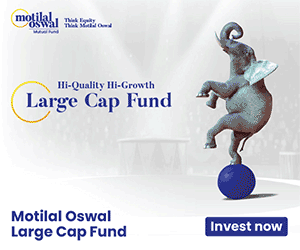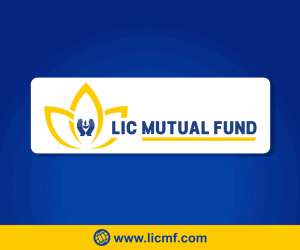Financial Planning in the Thrilling Thirties

In this 5 part series, we discussed about financial planning in your 20s in our last article - Financial-Planning/Financial-Planning-in-the-Tantalizing-Twenties
Thirties are a thrilling decade of your life. The life that you were leading in your twenties may have felt clueless. The advent of thirties brings with it a sense of direction. You feel sure about where you stand in life and in which direction it is headed. If you had already started investing in your twenties then returns are beginning to pile up and the investments are slowly reaping benefits. Thirties bring in a sense of surety that allows you enjoy life without constantly being worried about your dwindling bank account. Financially, you find yourself in a better place and hopefully things are looking promising for you. If you have played your twenties right then thirties will be an easier decade. If not, then the early years of this decade are probably the last chance for you to fix your financial future. It all boils down to your future visions and how motivated you are to fulfil that.
Review your Portfolio
All investments that have been made in your twenties are starting to churn substantial returns. However, you need to assess that are the investments generating the desired returns? You need to identify the underperforming investments and review them periodically. It may not be too late to start making fresh investments to make up for probable underfunding as time is still on your side. Underfunding for a goal in later years can be fatal as the deficiency increases with every passing year. Identifying it at an early stage reduces future financial burden.
Make New Investments
Make new investments for any new goals that you may have added. If you have started a family, maybe it is time you started investing for your child’s higher education. Or the house you wanted but could not invest in twenties. You could invest lump sum into already existing schemes if they have been performing consistently and generating high returns. Fresh investments might also be a necessity to bridge the gap between the present value and the future value. Rs. 25 lakhs that might be needed today to afford an education in a foreign university will not be enough 18 years down the line. Assuming inflation steadily raises at 7.5% per annum the expenses will be as high as Rs. 92 lakhs. Hence, your investments have to generate the future value.
In case you have underestimated the need for a retirement account earlier, it needs to be an investment priority. Start exploring options such as Equity Funds for long term investments and National Pension Scheme for retirement corpus. Financial planners and experts stress on the need for a retirement corpus because all the other goals can be fulfilled by means of external borrowing but one cannot borrow for retirement. It is this factor that makes early investment for retirement a crucial factor.
Increase the Life Insurance Cover
Late twenties and early thirties are the peak time to get settle down and start a family. During such changes in personal life, one needs to have adequate life insurance cover. A life insurance cover should at least be ten times your yearly income. Ideally, you should keep increasing the life insurance as the numbers of dependents grow and also as your income grows. If you have saved in your twenties to start an entrepreneurial venture in thirties then even this move calls for an increased life cover. Life insurance forms the financial cushion in case of your untimely death. It also becomes a means of income in case when the term expires and a lump sum is provided by the insurer.
Have an Emergency Fund
Growing family, ageing parents and living amidst a whirlwind of uncertain times, having an emergency fund is a must. It is a financial cushion that will save your family during the worst of times. An emergency fund should ideally be 6-9 months of your income. In case you do not want it to stagnate in savings bank account accumulating a meagre 4%, you can invest in short term debt fund or liquid funds which will allow access to these funds with ease. Check for exit load of the fund if redeemed before a year. There are also flexi deposit accounts in banks, where any sum above a specified limit flows into a fixed deposit to earn higher interest. Your money will earn the interest applicable to fixed deposits and will be available to you whenever you need it.
Manage and Eliminate Debt
Debts are the leakages that cause your savings to erode. Start paying off debts that you took in your twenties, structurally. Try not to pay off a big amount at once because that dwindle your savings. In case you are planning to take a big loan for a car or home, then it is better that all other debts and credit payments are cleared. This will allow you to make a clear judgement of your financial standing and how far you can stretch the loan amount. In case you are planning to take a home loan in your late 30s, this comes with a tax rebate of Rs. 1.50 Lacs under sec 80C and Rs 2.00 Lacs under Section 24 as interest deduction, during a financial year (these rates are effective from last FY 2014-15). Such a loan might be doubly beneficial as it allows you to purchase your home and provides tax exemptions too.
However, if you have piling credit card bills where the rate of interest can be as high as 36-48% you are putting unnecessary pressure by borrowing more from your future income than you can pay off. This has the potential to adversely affect you financial future. Try and make the minimum payments on time to avoid late charges which adds to the borrowed money.
One of the ways you can balance the inflow and outflow of cash is by having a SIP in mutual fund which will reap the same amount as the total outflow of cash. For example - if you have taken a home loan of Rs. 75 Lacs for say 30 years then your total outgo would be as follows –

Source: https://www.advisorkhoj.com/tools-and-calculators
You could generate this total outflow in 30 years by just investing Rs. 4,167 through a monthly mutual fund SIP in a diversified equity fund. See the table below and imagine how the power of compounding through a SIP investment balances out the total inflow and outflow of cash.

Source: https://www.advisorkhoj.com/tools-and-calculators/become-a-crorepati
Have a Balanced Portfolio
Twenties is the time when you step into the financial world. You are still learning the tricks of the trade and making small investments to test waters. Thirties is when your portfolio starts to take shape and what you do now determines how it will turn out to be in the long term. Your portfolio should be holistic while you are allocating your assets. You can still afford to incline on equities for returns as you have a long investment horizon. However, importance has to be given to the security provided by debts. Your portfolio should be generating expected returns and also have a debt management system where your debts can be paid off without putting pressure on investment for various goals.
As an investor it often gets confusing the extent to which one should invest in debts and equities. As we discussed, some of the key goals for you in your 30s could be, saving for a house, planning for child’s higher education, create a contingency fund and planning for your retirement. Based on that, the following asset allocation could work for investor in their 30s –
Equity funds – 75%
Bond Funds or other Debt investments – 15%
Liquid Funds – 10%
The apportioning of investments often determines the returns of the portfolio based on age, risk and the investment horizon keeping in mind the individual goals. The goals might vary from one investor to another; therefore, your exact asset allocation will depend on your personal goals, financial and family situation, number of kids and your earning level. It is advisable always to take help of a qualified financial advisor who should work in your best interest.
Conclusion
The thirties are called thrilling for a reason. The reason is that you enjoy life with a certain sense of purpose and security which was missing in your twenties. Financially, this is the last decade where you can start making investments for the long term, if you have not started before and yet generate hefty returns. It is also the decade where you are fulfilling some of your short term or intermediary goals and that leaves you with a sense of fulfilment. This ensures that you make saving and investing a priority as you have already realized saving and investing early can start to make your life easier. While you have a thrilling ride in your 30s, let your financial advisor take care of your investments and help you reach your financial goals.
Queries
-
What is the benefit of mutual fund STP
Aug 29, 2019
-
How much to invest to meet target amount of Rs 2 Crores
Aug 26, 2019
-
Can I achieve my financial goals with my current mutual fund investments
Aug 24, 2019
-
Can you tell me return of various indices
Aug 19, 2019
-
What would be the post tax return on different investments
Aug 18, 2019
-
Which Principal Mutual Fund scheme will be suitable for my retirement corpus
Aug 16, 2019
-
What is the minimum holding period for availing NCD interest
Aug 4, 2019
Top Performing Mutual Funds
Recommended Reading
Fund News
-
Axis Mutual Fund joins ONDC Network to Expand Access to Mutual Fund Investments
Apr 18, 2025 by Axis Mutual Fund
-
Nippon India Mutual Fund launches Nippon India Nifty 500 Quality 50 Index Fund
Apr 18, 2025 by Advisorkhoj Team
-
Nippon India Mutual Fund launches Nippon India Nifty 500 Low Volatility 50 Index Fund
Apr 18, 2025 by Advisorkhoj Team
-
RBI Monetary Policy: RBI changes policy stance and lowers rate
Apr 9, 2025 by Axis Mutual Fund
-
Kotak Mahindra Mutual Fund launches Kotak Nifty Top 10 Equal Weight Index Fund
Apr 7, 2025 by Advisorkhoj Team













